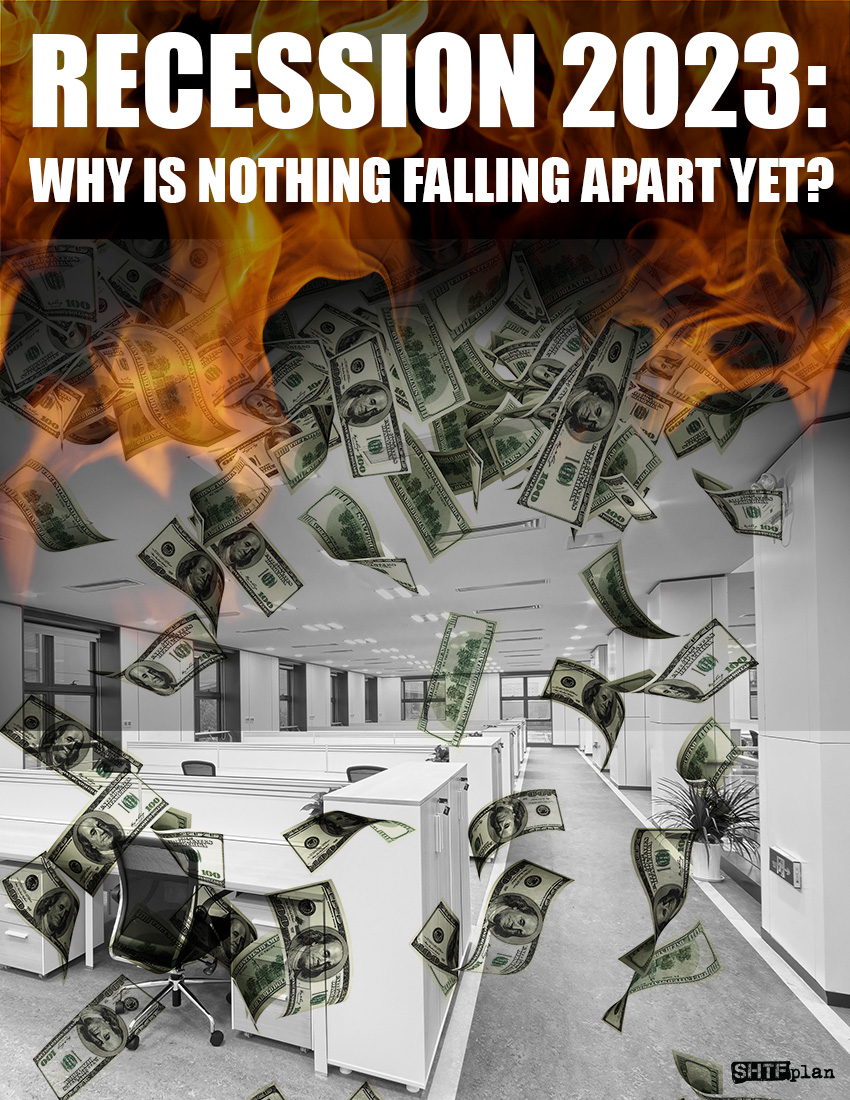
TRUMP SAYS: HUNTER MAKES FORTUNE FROM SHADY DEALS!
BIDEN FAMILY STINKS TO HIGH HEAVENS OF CORRUPTION!
DON'T GET LEFT OUT: HUNTER MUST BE STOPPED!

This article was originally published by Frank Shostak at The Mises Institute.
Many economists, including Milton Friedman, have claimed that reality is elusive and that one cannot know its true nature. Most mainstream economists also believe that data gives us the state of the economy. By inspecting numbers such as gross domestic product (GDP) or the consumer price index, only then can an economist accurately assess the state of economic conditions.
Ludwig von Mises and the Austrian School of Economics have had a different view. According to Mises, the data is a historical display and, by itself, cannot provide the facts regarding the real world. To make sense of the data, one needs to have a theory beforehand that will allow one to interpret the data, and the theory must originate from something real that cannot be refuted. A theory resting on the foundation that human beings act consciously and purposefully fulfills this requirement.
One cannot refute that foundation since anyone trying to do so does it consciously and purposefully and thus contradicts himself, according to Hans-Hermann Hoppe. The knowledge that human actions are conscious and purposeful allows one to make sense of historical data, writes Murray N. Rothbard in the preface to Theory and History by Mises.
The key to examining data is establishing the subject and definition of what one is analyzing. To establish a definition, one should go back as far as one can to the point of time when that particular thing emerged.
For instance, when analyzing money supply, we would go back to when a particular commodity started to assume the role of money. In this case, one would establish that individuals began to use money to promote the trading of goods. A commodity that was selected as money enabled the most efficient exchange. Note that, through the general medium of the exchange, we establish that individuals are paying for one good with another good with the help of money.
We can also establish that increases in the quantity of money cause a decline in the purchasing power of money, all other things being equal. This is because the expansion of the money supply results in a greater amount of money per unit of a good than in the previous situation, all other things being equal. Note that the price of a good is the amount of money per unit of a good. Hence, by observing an increase in money supply, one could infer that more money will be spent per good, bringing a decline in the money’s purchasing power.
The definition that money is the general medium of exchange enables the understanding that once money is injected, there will always be early and late recipients of money. This in turn enables us to infer that a change in the money supply is likely to have a lagged effect on the prices of goods.
Without a theoretical framework, the data by itself cannot tell us the conditions of the economy. It cannot tell us whether the strong GDP data is because of a wealth expansion or because of the erosion in the wealth-generation process.
For instance, once it is established that the loose monetary policies of the central bank are behind the so-called strong economic conditions, then by means of a theory, we can establish that this is going to weaken the wealth-generation process. In the modern world of the paper money standard, we can establish that an increase in money supply results in an exchange of nothing for something. This leads to a diversion of wealth from wealth generators to non-wealth-generating activities.
To maintain their lives and well-being, individuals are likely to prefer present consumption over future consumption. As an individual’s wealth expands, the premium assigned to present consumption over future consumption likely declines, with the premium of present consumption over future consumption determining interest.
Preferring present consumption to future consumption implies that, to live, people assign a premium to present consumer goods versus future consumer goods. From this, we can also establish that individuals’ time preferences determine interest rates, not central bank policies.
Central bank policies can only distort interest rates, thus setting in motion boom-bust cycles and economic impoverishment. Also, note that preferring present consumption over future consumption implies that interest rates must be positive.
If one observes negative interest rates, this does not contradict the theory but rather forces the analyst to ponder how this could have happened. Most likely, he will discover that the main reason for these rates are the central bank’s monetary policies that distort the interest rates.
Furthermore, the fact that an individual pursues purposeful actions implies that causes in the world of economics emanate from human beings and not from outside factors. This means that mathematical methods are not going to be of much help here.
For instance, contrary to popular thinking, one’s outlays on goods are not caused by real income as such. In his own unique context, every person decides how much of a given income will be used for consumption and how much for investments.
While it is true that people are likely to respond to changes in their incomes, the response is not automatic. Every individual assesses changes in income against the particular set of goals he wants to achieve. In response to the increase in income, he might decide that it is more beneficial for him to raise his investment in financial assets rather than to raise consumption. However, the important thing to remember is that the decision is made by the person in question, not a mathematical equation.
Reliance on statistical data as a foundation for the formation of a view about the state of the economy is questionable. Data cannot produce information about the facts of reality without a theory that “stands on its own feet” and is not derived from the data itself. Once the theory passes the test of logic, it becomes the means for interpreting the facts of reality through the assessment of the data.

It Took 22 Years to Get to This Point
Robert F. Kennedy Jr. has claimed to be ready to lock up Bill Gates, Dr. Anthony Fauci, and every...
This article was originally published by Rhoda Wilson at The Exposé under the title: Philippines...
This article was originally published by Ethan Huff at Natural News. Houthi rebels in Yemen...
This article was originally published by Cassie B. at Natural News. A Dutch government official...
Commenting Policy:
Some comments on this web site are automatically moderated through our Spam protection systems. Please be patient if your comment isn’t immediately available. We’re not trying to censor you, the system just wants to make sure you’re not a robot posting random spam.
This website thrives because of its community. While we support lively debates and understand that people get excited, frustrated or angry at times, we ask that the conversation remain civil. Racism, to include any religious affiliation, will not be tolerated on this site, including the disparagement of people in the comments section.


Comments